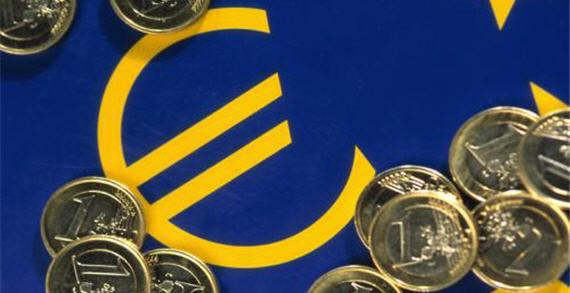Markets Respond To Spanish Bailout With A Resounding “Meh”
The big news over the weekend was the fact that leaders in Europe had apparently averted another financial crisis by putting together a rescue package for Spain’s beleagured banking sector. As it turned out, though, the plan has done next to nothing to reassure markets worried about Spanish solvency:
PARIS — Investor enthusiasm for Spain’s financial sector bailout did not even last a day, with Spanish and Italian bond yields spiking Monday and stocks giving up early gains amid skepticism that the euro zone would master its crisis.
Prime Minister Mariano Rajoy agreed Saturday with fellow euro members on a 100 billion euro, or $126 billion, infusion of capital for Spain’s financial sector.
In early European trading, the price of Spanish government debt rallied, sending the yield on the benchmark 10-year bond below 6 percent, raising hope that Europe might have put out at least one of the fires that are threatening the euro edifice.
But by afternoon in Europe, the yield on the Spanish 10-year government bond, which moves in the opposite direction of the price, soared by 30 basis points to 6.466 percent. Italian bonds also lost ground, with the 10-year yield rising 26 basis points to 6.004 percent.
“There are chronic problems and there are acute problems,” Kenneth Wattret, chief euro zone economist at B.N.P. Paribas in London, said. The weekend Spanish deal “has dealt with one of the acute problems.”
The chronic issues, including fiscal imbalances and deteriorating economies in the euro zone, remain to be addressed, he said, but he pointed to a growing sense of urgency among European Union officials as a reason to be optimistic.
Brad Plumer argues that there really only appears to be two paths forward for Spain, neither of which is particularly pleasant:
The line from most analysts is that the deal didn’t, as Wolfgang Munchau puts it, “render Spain’s position in the eurozone sustainable.” Under the agreement, Europe will lend the Spanish government up to $125 billion. A Spanish government agency will use that money to buy partial stakes in Spanish banks, giving the banks more capital — similar to how the United States recapitalized its banks with TARP. (Spain’s version, by the way, is called “FROB,” the Fund for Orderly Recapitalization of Banks.)
Trouble is, the Spanish government itself already has a high debt load — about 81 percent of GDP. That figure is expected to soar above 90 percent of GDP if Spain takes the full $125 billion loan. Given that Spain is now slogging through a recession that’s being exacerbated by large austerity measures, those debts are looking fairly unsustainable.
“The eurozone,” Munchau notes, “must recognise that some form of debt relief, or default, will be inevitable.” In other words, there are only two ways this can end: Spain is likely either going to need actual aid from the rest of Europe to fix its banks — rather than more loans — or it will end up defaulting on its debts. And if Spain defaults, the country is big enough that it could drag down the rest of Europe with it.
This is just day one of what is likely to be another nerve wracking week for Europe. There are, as noted above, already signs of trouble in Italy, and on Sunday Greek voters go to the polls in an election likely to decide the fate of that country’s bailout deal. So hold on to your hats.







So, giving free money to bankers and shielding them from actual damage from the risky investments they knowingly and willfully made _doesn’t_ actually improve investor confidence? It just convinces them they can do whatever they want and never lose money? And it doesn’t do a bloody thing to improve the economy, get unemployed people jobs, or put more money in the hands of actual consumers?
If these comments allowed image embeds, this is where I’d put the “Nick Cage – REALLY?” picture…
And yet the exchange rate is about where it was in late 2008 and in 2010. The Euro isn’t dropping. A currency on the edge of collapse should buy fewer dollars I’d have thought.
@michael reynolds:
The Euro is down more than 20% vs. the dollar since it’s high in 2008:
http://finance.yahoo.com/q/bc?t=5y&s=EURUSD%3DX&l=on&z=l&q=l&c=&ql=1
You’re comparing against a randomly chosen high point. I’ve seen the charts. I was living in Italy in 2008 when it was 1.60 and soon after that — once we left the country, naturally — it was down to 1.27. It’s been up and it’s been down, but it has not by any means dropped off a cliff. It’s right where it was in late 2008, and right where it was for part of 2010.
@michael reynolds: No, the euro hasn’t fallen off a cliff but you can see a clear trend since the euro-crisis began four years ago:
http://www.google.com/finance?hl=en&client=safari&tbo=d&biw=1024&bih=644&q=CURRENCY:EURUSD&ei=4k3WT97BEonO9QSPhtDQAw&sa=X&oi=currency_onebox&ct=currency_onebox_chart&resnum=4&ved=0CHQQ5QYwAw
This is because markets are stupid. They continue to believe this will somehow all work out in the long run because they don’t understand the currency itself is fundamentally flawed, so they send their capital to Germany for safe-keeping. If markets understood the problems with the euro monetary system they wouldn’t touch German bonds for all the tea in China.
@michael reynolds: By the way, would you be willing to ask Dave Schuler if I’ve been banned or anti-spammed at The Glittering Eye? My comments disappear into the ether and I have no alternate method to ask him myself.
@Ben Wolf: Well, Europeans themselves don’t grasp the idea of being part of a larger entity; why would you expect them to understand that taking money out of Greece and Spain and putting it into Germany and France doesn’t actually “move” it at all?
The oil price rose in early trading but quickly fell to lows not seen in almost a year. Oil prices are one of the best indicators.
@Ben Wolf:
I will ask him and let you know.
@Ben Wolf:
Ben:
Dave says, “Absolutely not.” He thinks his spam filter freaked out at one link-heavy comment. He’s freed all your comments.
The positive news is that spain is too big to fail and spain is definitely more of a warning to france and germany than greece is. With greece, other countries can lie to themselves about why they aren’t in the same predicament but that doesn’t work for Spain. If spain can go down, no euro economy or debt is safe. Maybe that threat will force people to stop making policy based on BS stereotypes.